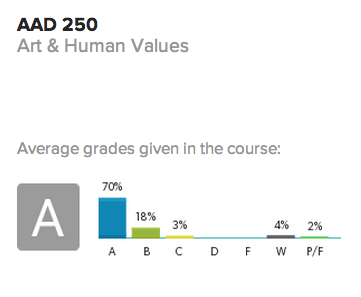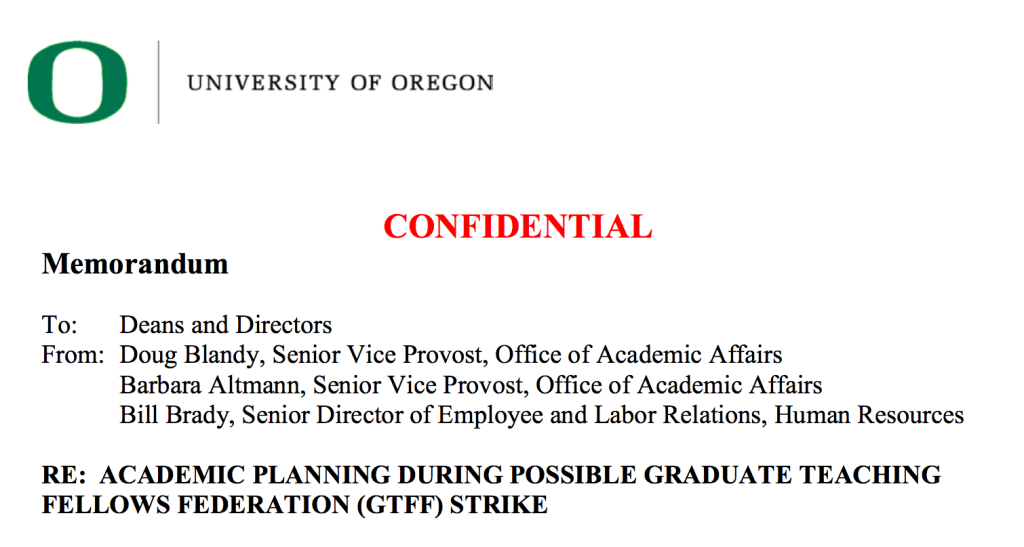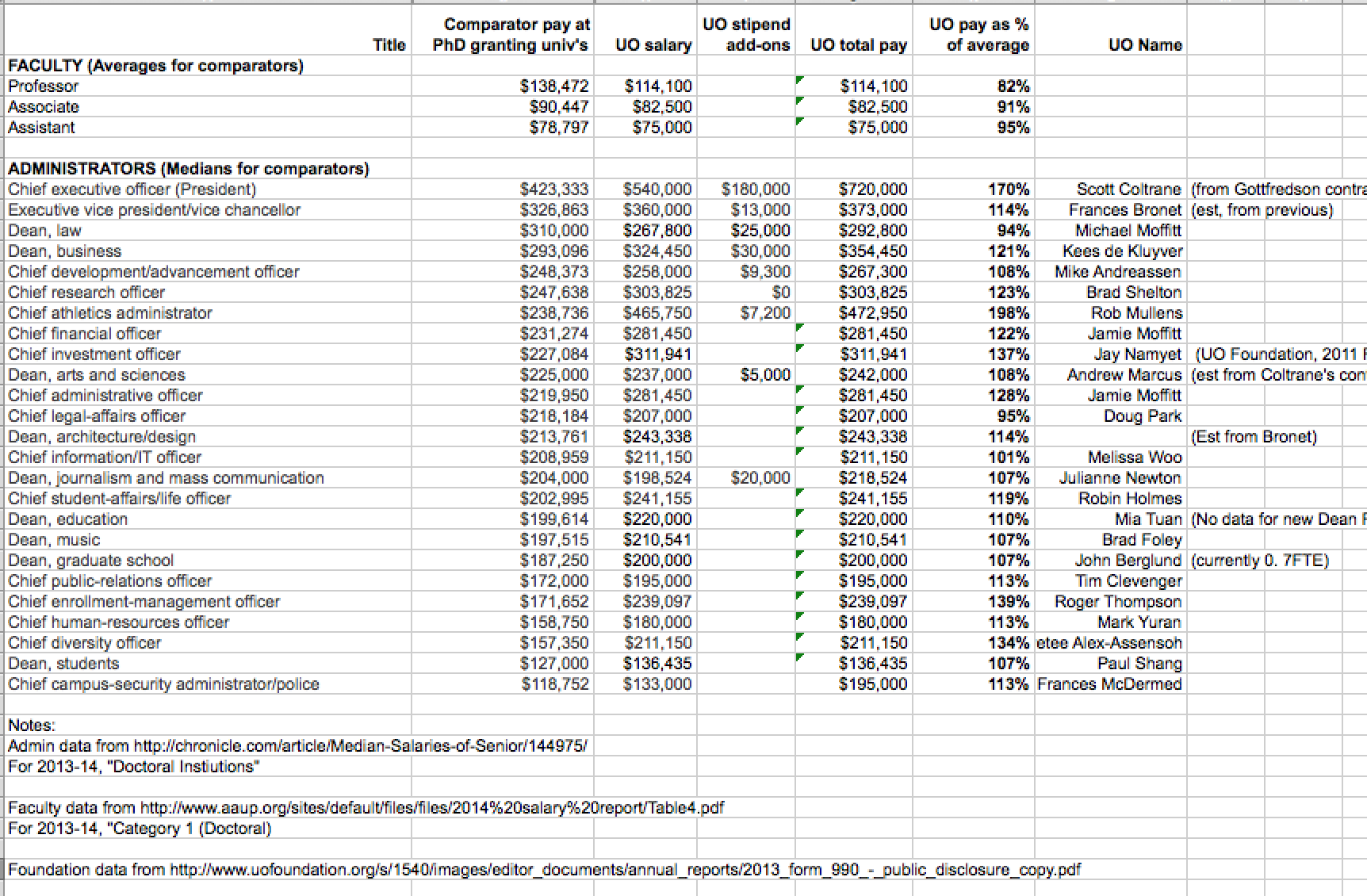11/25/2014 update: The GTFF has sent its leadership team to meet with the State appointed mediator, presumably for the last time. No word if the UO administration has sent anyone with the power to cut a deal, or just $300-an-hour zoning easements attorney Jeff Matthews and the usual low-level administrators. Meanwhile UAUO President Michael Dreiling has an op-ed in the RG in support of the grad students:
Why do we support the federation?
On Nov. 5, UO President Scott Coltrane explained to the University Senate why attracting, supporting and retaining graduate students is essential to meeting our academic ambitions. The UO is doing poorly in this respect.
Recent data show that our total number of graduate students has declined. Many universities with which the UO competes already provide paid sick leave for their graduate employees. The UO cannot afford to fall further behind them. Better pay and a humane sick leave policy would make the UO more competitive, and we urge the administration to move on these proposals.
He’s got a point. UO needs more grad students to stay in the AAU, as Board Chair Chuck Lillis discussed in his meeting with the faculty Senate. It’s not happening, and we all know pay and benefits are part of prospective students’ decision. Here’s the last 10 years or so of enrollment data (includes professional students). We lost 100 or so last year alone:

11/24/2014 update: Unions post updates on strike, what to do about grades, AAUP support
The United Academics faculty union’s website includes some useful info about grading, and a letter of support from the AAUP for the “dilute and degrade” legislation and opposition to the administration’s confidential strike plans, here. This message is particularly strong:
The campus is caught up in confrontation and brinksmanship. Regardless of where anyone stands on the issues between the GTFF and the administration, we all have right to expect our administration to provide creative leadership in these difficult times. We are not getting this leadership from our colleagues in Johnson Hall.
The GTFF grad student union post is here, and among other things they have a letter of support from a major German trade union, reassuring the UO administration that:
“Parental leave, maternity protection and sick pay are not equivalent to socialism, but are self-evident principles.”
Now that this matter of principle has now been cleared up, perhaps the UO administration will finally agree to a deal with the GTFF. Rumor has it that the mediator from the Oregon LRB is willing to try one more time, tomorrow.
11/22/2014 update: Blandy and Altmann’s admin costs up $1.1M or 50%, in just two years
And Scott Coltrane doesn’t know where to find the $300K to settle with the GTF’s?
And from what I can tell UO’s General Counsel’s office has spent another $150K on outside lawyers in the last two months, suggesting that HLGR’s Sharon Rudnick and Jeff Matthews may be approaching $250K in billings for the GTFF bargaining. (Dave Hubin’s Public Records office is still hiding the invoices, which I paid him for almost 2 weeks ago.)
11/22/2014 update: The well known Crooked Timber blog follows up on the Chronicle report with a complete dissection of the UO administration’s dissembling about the grad student strike, here.
11/21/2014: $530,000 in Vice Provosts not enough to figure out “X” grade
For some reason UO has *two* “Senior Vice Provosts of Academic Affairs”, Barbara Altmann and Doug Blandy, each pulling in paychecks of ~$190K, plus a regular VP of Academic Affairs Ken Doxsee, paid ~$150K. But apparently three’s not enough to do the job. While we all know Blandy has some unusual but lucrative ideas about what an A grade means,

it seems that Academic Affairs is also now confused about the X grade:









